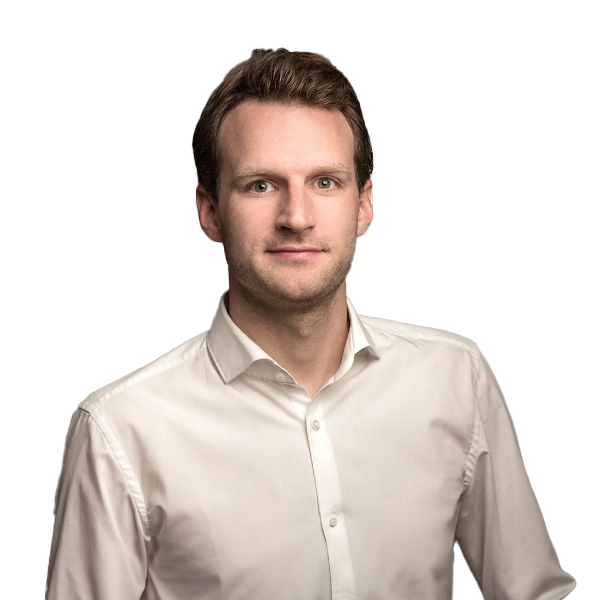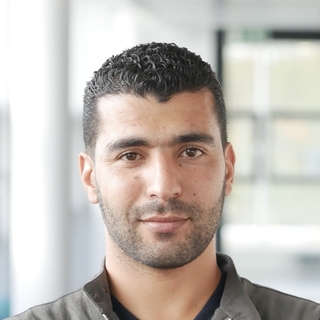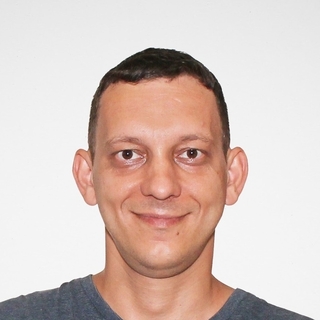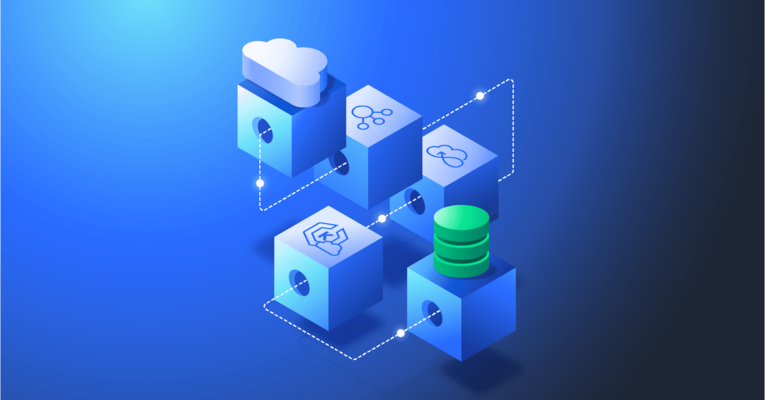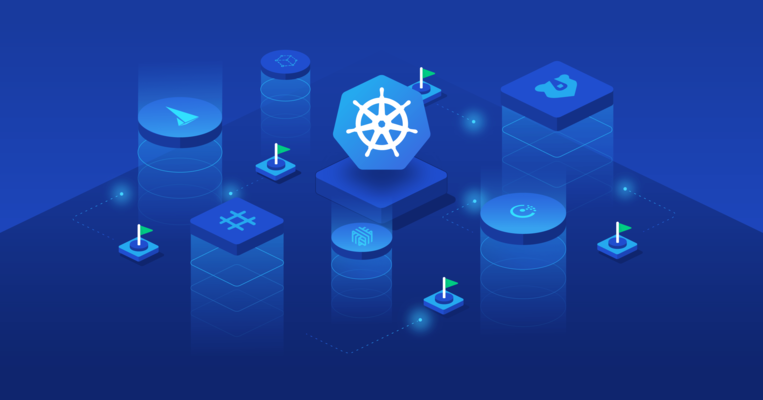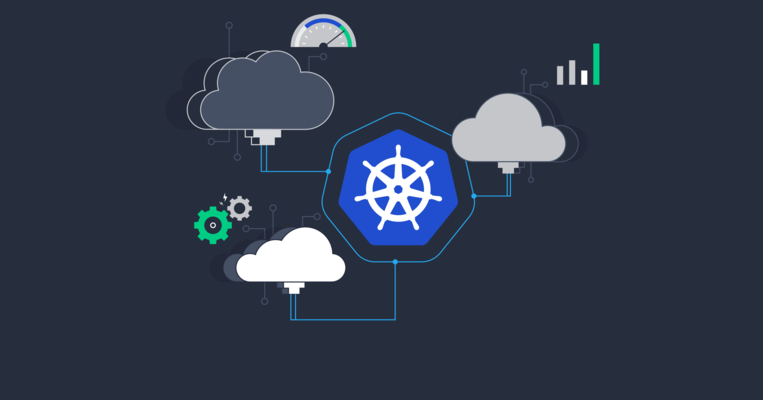
Hire Kubernetes Developers
Hire the Top 3% of Freelance Kubernetes Developers
Hire Kubernetes developers, experts, engineers, consultants, architects, and specialists on demand. Top companies and startups choose Kubernetes developers from Toptal for container orchestration, microservices deployment, cluster scaling, Helm charts, and more.
No-Risk Trial, Pay Only If Satisfied.
Hire Freelance Kubernetes Developers
Tochukwu Nwoko
Tochukwu is a certified Kubernetes administrator with a wealth of experience in Linux, DevOps, Cloud Security, AWS, Python, Go, and Terraform and a proven track of excellence in designing, implementing, and maintaining highly scalable, secured, high-performing, resilient, and efficient infrastructure.
Show MorePeter Wiggers
Peter has been a Kubernetes fanatic since the birth of this amazing orchestration tool in 2014. He designs and builds efficient, scalable, and maintainable solutions in Google Cloud Platform. He is an entrepreneur who has helped SMBs, banks, and enterprises save time and money. Peter's solutions are multi-cloud-ready as he prefers cloud-agnostic options. Peter is also an experienced Python developer, an automation expert, and a Django framework fan.
Show MoreFabrice Triboix
Fabrice is a DevOps engineer with eight years of experience with AWS and six years with both Kubernetes and Terraform. He is very keen on automation (CI/CD, infrastructure as code) and solving complex problems with simple solutions. He worked for clients such as NatWest Bank, Cisco, Topps, the UK Home Office, medium-sized companies, and many startups. His greatest joy is to see his work actually being used in production and making a positive impact on his clients' businesses.
Show MoreAditi Wadekar
Aditi is a senior DevOps engineer with 10 years of experience building and automating cloud infrastructure on AWS and Azure for numerous clients. She has helped integrate open-source tools such as Jenkins, Git, Docker, ELK stack, Argo CD, and Helm. Aditi is eager to work hands-on with the latest technologies and help clients simplify their tasks and achieve their goals.
Show MoreMohamed Chiheb Ben Jemaa
Mohamed is an engineer with over five years of experience in information technology, specializing in Kubernetes and cloud-native technologies. Having a software development and site reliability engineering background, he is an avid open-source contributor interested in advanced Kubernetes topics. Mohamed has solid knowledge of Kubernetes ecosystem, Google Cloud Platform, and Terraform.
Show MoreNabi Vusal
Nabi is a senior DevOps engineer with 10+ years of IT experience and 6+ years in cloud-native platforms, CI/CD automation, and infrastructure as code. Nabi has delivered secure, scalable systems using AWS, Kubernetes, Terraform, and GitOps across enterprise and startup projects. Known for hands-on problem solving, Nabi has built zero-downtime pipelines and thrives in cross-team collaboration. He holds certifications in AWS, Azure, and Red Hat.
Show MoreGiovanni Ferri
Giovanni is a seasoned platform and site reliability engineer with nearly 20 years of experience in IT infrastructure, cloud engineering, and automation. He specializes in Kubernetes, Terraform, and cloud-native technologies, designing resilient, scalable platforms across hybrid cloud and bare-metal environments. Passionate about open-source solutions and DevOps best practices, Giovanni empowers teams to build efficient, automated developer workflows.
Show MoreAli Al-Charakh
Ali is a highly skilled principal engineer with experience in cloud computing, infrastructure as code, Linux, CI/CD, and cloud compliance. He can bring a wealth of knowledge and expertise to any organization. With a proven track record of successful project delivery, he is well-equipped to tackle complex challenges and deliver results that drive business success. Ali's passion for technology and commitment to staying at the forefront of industry trends makes him an invaluable asset to any team.
Show MoreKostya Plis
Kostya is a DevOps engineer with extensive knowledge of Linux and Windows environments and 15+ years of IT experience. He has hands-on experience designing, implementing, and managing cloud (AWS, GCP) and on-premises solutions following industry standards. Kostya's work has reduced the cognitive load on DevOps teams, eliminated bottlenecks, created checks for pull requests in high-load repositories, and achieved 100% IaC for company cloud environments of over 50 AWS services.
Show MoreSivakumar Reddy Mettukuru
Sivakumar is a DevOps and AWS Cloud architect with 10+ years of experience, with expertise in Jakarta EE development. He considers his DevOps mindset with development experience to be his greatest strength. He is able to set up cloud infrastructures with IaaC tools like Terraform or CloudFormation and end-to-end automated pipelines with CI/CD. Sivakumar can improve security, reduce costs, and optimize any application for better performance.
Show MoreOliver Ewert
Oliver has over five years of experience with automation in the cloud—from automated firewall appliance provisioning to modern, serverless web applications. Along with a strong security and systems background, he's successfully worked as a full-stack developer. He started freelancing because he enjoys new challenges and helping people and wants more flexibility. Oliver is an active member of his local developer community, speaking at conferences and contributing to open source.
Show MoreDiscover More Kubernetes Developers in the Toptal Network
Start HiringA Hiring Guide
Guide to Hiring a Great Kubernetes Developer
Kubernetes developers deploy, scale, and manage containerized applications. They work on various tasks, ranging from system maintenance to architectural design, and often operate in cloud environments. This Kubernetes hiring guide streamlines the process for identifying the top candidates.
Read Hiring Guide... allows corporations to quickly assemble teams that have the right skills for specific projects.

Despite accelerating demand for coders, Toptal prides itself on almost Ivy League-level vetting.









How to Hire Kubernetes Experts Through Toptal
Talk to One of Our Client Advisors
Work With Hand-selected Talent
The Right Fit, Guaranteed
EXCEPTIONAL TALENT
How We Source the Top 3% of Kubernetes Developers
Our name “Toptal” comes from Top Talent—meaning we constantly strive to find and work with the best from around the world. Our rigorous screening process identifies experts in their domains who have passion and drive.
Of the thousands of applications Toptal sees each month, typically fewer than 3% are accepted.
Toptal Kubernetes Case Studies
Discover how our Kubernetes developers help the world’s top companies drive innovation at scale.
Capabilities of Kubernetes Developers
Toptal’s developers harness the power of Kubernetes to orchestrate containerized applications, managing, scaling, and automating deployments to ensure high availability and resilience.
Container Orchestration
Building Microservices Architectures
CI/CD Pipeline Integration
Kubernetes Cluster Set Up and Management
Security and Role-based Access Control (RBAC)
Helm Charts for Application Deployment
Service Mesh Implementation
Autoscaling and Load Balancing
Monitoring and Logging With Prometheus and Grafana
Disaster Recovery and Backup Strategies
FAQs
How much does it cost to hire a Kubernetes developer?
The cost associated with hiring a Kubernetes developer depends on various factors, including preferred talent location, complexity and size of the project you’re hiring for, seniority, engagement commitment (hourly, part-time, or full-time), and more. In the US, for example, Glassdoor’s reported average total annual pay for Kubernetes developers is $77,000 to $141,000 as of October 2024. With Toptal, you can speak with an expert talent matcher who will help you understand the cost of talent with the right skills and seniority level for your needs. To get started, schedule a call with us — it’s free, and there’s no obligation to hire with Toptal.
How quickly can you hire with Toptal?
Typically, you can hire Kubernetes developers with Toptal in about 48 hours. For larger teams of talent or Managed Delivery, timelines may vary. Our talent matchers are highly skilled in the same fields they’re matching in—they’re not recruiters or HR reps. They’ll work with you to understand your goals, technical needs, and team dynamics, and match you with ideal candidates from our vetted global talent network.
Once you select your Kubernetes engineer, you’ll have a no-risk trial period to ensure they’re the perfect fit. Our matching process has a 98% trial-to-hire rate, so you can rest assured that you’re getting the best fit every time.
How in demand are Kubernetes developers?
The widespread adoption of Kubernetes for container orchestration in modern software development and deployment has increased the demand for skilled Kubernetes developers. Their expertise is crucial for organizations leveraging Kubernetes to efficiently manage, scale, and deploy containerized applications. As more companies transition to microservices architectures and embrace DevOps and cloud-native technologies, the demand for skilled Kubernetes developers will continue to surge. The growing ecosystem around Kubernetes and its pivotal role in facilitating agile and scalable infrastructures further accentuates the demand for developers proficient in Kubernetes. Therefore, securing a skilled Kubernetes developer has become a competitive advantage for businesses aiming to accelerate their digital transformation initiatives.
How do I hire Kubernetes developers?
To hire the right Kubernetes developer, it’s important to evaluate a candidate’s experience, technical skills, and communication skills. You’ll also want to consider the fit with your particular industry, company, and project. Toptal’s rigorous screening process ensures that every member of our network has excellent experience and skills, and our team will match you with the perfect Kubernetes developers for your project.
How are Toptal Kubernetes experts different?
At Toptal, we thoroughly screen our Kubernetes experts to ensure we only match you with the highest caliber of talent. Of the more than 200,000 people who apply to join the Toptal network each year, fewer than 3% make the cut.
In addition to screening for industry-leading expertise, we also assess candidates’ language and interpersonal skills to ensure that you have a smooth working relationship.
When you hire K8s developers with Toptal, you’ll always work with world-class, custom-matched Kubernetes developers ready to help you achieve your goals.
Can you hire K8s developers on an hourly basis or for project-based tasks?
You can hire Kubernetes engineers on an hourly, part-time, or full-time basis. Toptal can also manage the entire project from end-to-end with our Managed Delivery offering. Whether you hire a Kubernetes developer for a full- or part-time position, you’ll have the control and flexibility to scale your team up or down as your needs evolve. Our Kubernetes developers can fully integrate into your existing team for a seamless working experience.
What is the no-risk trial period for Toptal Kubernetes engineers?
We make sure that each engagement between you and your Kubernetes developer begins with a trial period of up to two weeks. This means that you have time to confirm the engagement will be successful. If you’re completely satisfied with the results, we’ll bill you for the time and continue the engagement for as long as you’d like. If you’re not completely satisfied, you won’t be billed. From there, we can either part ways, or we can provide you with another Kubernetes developer who may be a better fit and with whom we will begin a second, no-risk trial.
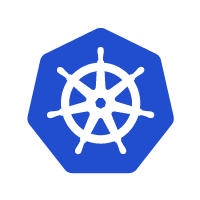
How to Hire Kubernetes Developers
Akansh is a DevOps engineer with expertise in infrastructure as code (IaC), configuration management, CI/CD, and container orchestration using Docker and Kubernetes. He is an AWS Certified Solutions Architect with extensive experience building and managing DevOps architectures on the AWS infrastructure and has experience in domains like fintech and security.
Expertise
Previously at

Kubernetes Developer Demand Is Growing Exponentially
Kubernetes has become a cornerstone of modern infrastructure, with 96% of organizations leveraging it to orchestrate containerized environments. As the leading container orchestration platform, Kubernetes’ global market is skyrocketing—projected to grow from $1.8 billion in 2022 to $7.8 billion by 2030. As this technology continues to expand its reach, the demand for skilled developers who can design, deploy, and manage these complex systems is at an all-time high.
Hiring Kubernetes developers demands a well-structured and strategic approach. Kubernetes-related roles span a broad spectrum, from system maintenance and troubleshooting to advanced architectural design and scaling tasks. To ensure a successful hire, your organization must first define clear candidate requirements and developer responsibilities tailored to your project’s unique needs. Once these criteria are established, you can efficiently narrow down candidates based on their expertise and the skill set required for the role.
This guide outlines the essential competencies to look for in a candidate, breaking down abilities into varying degrees of expertise. It also includes example interview questions designed to reveal candidates’ abilities and a job description template to attract high-quality talent. These insights will help you identify top Kubernetes developers who can integrate smoothly into teams and drive key business outcomes in scaled environments.

What Attributes Distinguish Quality Kubernetes Developers From Others?
Proficient Kubernetes engineers automate containerized applications’ deployment, scaling, and management, enabling organizations to maintain a robust infrastructure. They often have well-rounded résumés, including technical skills, practical business analysis skills, continuous learning abilities, and communication skills.
Technical Understanding
Core Kubernetes concepts—Candidates should demonstrate a strong understanding of Kubernetes and container orchestration concepts such as Pods, Deployments, Services, and StatefulSets, as well as the underlying architecture, networking, and storage principles. Developers with deep expertise in these areas can identify and solve problems more quickly and efficiently. Additionally, effective container usage streamlines processes, reducing implementation and coordination costs across development teams.
Related technologies—Skilled Kubernetes developers should also have a deep understanding of related technologies (e.g., Docker, Helm) and be familiar with cloud infrastructure. They may have prior experience with adjacent technologies such as Linux and Git, as well as open-source software and back-end or full-stack app development outside of the Kubernetes ecosystem. In some cases, Kubernetes can also support front-end applications by managing scalable environments for client-side frameworks that require real-time data synchronization with back-end services.
Performance optimization—Demonstrable experience in Kubernetes clusters performance optimization (such as load balancing, automation, and continuous monitoring) is essential where a focus on resource efficiency and operational resilience are central. In general, a more optimized solution will reduce your overall processing costs, regardless of whether your solution is in development, testing, or production.
Cluster troubleshooting—Exceptional problem-solving capabilities set quality software engineers apart, especially in troubleshooting and debugging Kubernetes clusters. Their ability to swiftly identify and rectify issues minimizes downtime and ensures operational continuity, ultimately reducing overall system and engineering costs.
Complementary Programming Languages
Go—Kubernetes is written in the Go language (sometimes referred to as Golang). Knowing Go allows a developer to work with the core codebase. A Go-proficient developer can also create custom controllers and operators to extend Kubernetes functionality. Go’s simplicity and efficiency lend themselves to building scalable, concurrent, and high-performance systems within a Kubernetes ecosystem.
Python—Developers often choose Python when looking for a programming language with a versatile and straightforward syntax. Python has extensive libraries and frameworks that integrate with Kubernetes APIs, allowing developers to automate tasks for scripted deployments and routine cluster maintenance.
Java—Kubernetes is commonly used to orchestrate microservices. Many developers use robust Java frameworks, like Spring Boot, to implement these microservices. Java’s maturity, portability, and strong typing make it a popular programming language for building scalable and maintainable applications within Kubernetes environments.
JavaScript/Node.js—JavaScript development offers another route for the implementation of microservices via Node.js. When developers want a lightweight and efficient runtime environment in which to write microservices and real-time applications hosted within Kubernetes clusters, Node.js is a perfect choice. Node.js provides a nonblocking I/O model and an event-driven architecture that excels at handling high-traffic and data-intensive applications orchestrated with Kubernetes.
Ruby—Many developers appreciate Ruby and its popular framework, Rails, for creating robust web applications and microservices within Kubernetes environments. Ruby’s development model expedites the software development process, which pairs nicely with a Kubernetes orchestration focused on scalable and reliable deployment.
C#—Microsoft’s C# language is often found in enterprise development environments requiring robust, secure, and scalable building blocks. Microsoft’s .NET framework supports Kubernetes through its KubernetesClient library, as well as its .NET Core Web API framework. There are also tools such as Helm and Linkerd that help manage .NET applications on Kubernetes. The technical pairing of C# and Kubernetes is a strong choice as a technical stack to bolster a solution’s scalability and management while ensuring a seamless deployment.
Soft Skills
Staying abreast of evolving technologies—In the ever-evolving cloud-native ecosystem, adaptability is key. Quality Kubernetes developers are committed to continuous learning and staying up to date with the latest releases and associated technologies.
Understanding business objectives—Top-notch developers understand business objectives and can align Kubernetes implementations with an organization’s goals, driving value and ensuring a competitive edge.
Kubernetes certifications, such as Certified Kubernetes Administrator (CKA) or Certified Kubernetes Application Developer (CKAD), validate a candidate’s proficiency with the technology and its workflows. These credentials provide external validation of technical mastery and can serve as an additional evaluation criterion during the interview process.
How Can You Identify the Ideal Kubernetes Developer for You?
Identifying the ideal developer for your organization hinges on several factors, including your organizational challenges, the required technical and nontechnical expertise, and the hiring budget.
Here’s a structured approach to guide you through the process:
Define the Problem Statement and Skills Gap
Begin by articulating the specific organizational challenges that necessitate hiring a Kubernetes developer. These challenges could include setting up and managing a Kubernetes environment, migrating existing applications to a Kubernetes-orchestrated environment, or optimizing a current setup for performance and cost efficiency.
Identify the skills gap within your team. What Kubernetes-specific skills are you lacking? Is it a deep understanding of maintenance, experience with a particular cloud platform like Google Cloud (GCP), or the ability to troubleshoot complex issues?
Determine the Required Level of Expertise
Junior developers are suitable for organizations looking for basic setup, configuration, and maintenance of Kubernetes environments. They might possess fundamental knowledge of Kubernetes architecture, like networking, storage, service types, and security configurations, but may require guidance for complex tasks. Junior developers should also have familiarity with Docker and how to write Dockerfiles.
Mid-level developers are well suited for organizations looking to tackle more complex Kubernetes projects while providing minimal oversight. Mid-level developers possess a good grasp of Kubernetes concepts and complementary technologies (e.g., Docker, Helm), and are adept in one or more complementary programming languages and frameworks. Additionally, the vetting process must ensure they have real-world experience in Kubernetes cluster deployment and management. Look for solid troubleshooting and debugging skills to identify and resolve issues within Kubernetes environments.
Senior developers are ideal for organizations with complex, large-scale Kubernetes implementations or those looking to optimize their setup for performance, security, and cost efficiency, especially when considering a full-time, remote Kubernetes developer. They bring many years of experience and often possess CKA or CKAD certifications. Additionally, if your project entails complex microservices architectures, knowledge of Kubernetes Service Mesh technologies such as Istio or Linkerd will be invaluable. Their expertise will ensure reliable interservice communication, traffic management, and enhanced security and observability within your Kubernetes environment.
Considering the Budget: Cost vs. Expertise
Balancing your budget with your required expertise level is crucial. While expert Kubernetes developers may have higher hourly rates, their experience can lead to cost savings in the long run due to their ability to optimize the Kubernetes environment, reduce downtime, and ensure adherence to best practices. In many cases, it can be more cost-effective to hire remote Kubernetes developers. Furthermore, consider whether you need in-house talent or if remote freelancers would be sufficient to get the job done.
Addressing Specific Use Cases
Identify specific use cases and projects on which the developer will work. For instance, if your project involves setting up a continuous integration/continuous deployment (CI/CD) pipeline within a Kubernetes environment, look for developers with experience in CI/CD and DevOps methodologies.
If the developer will be focused more on scripting maintenance and deployment tasks, ensure they are proficient in the appropriate programming languages, like Python. If you’re looking for a tech lead, make sure they have previous experience as a project manager in addition to their development work. If your company is an early-stage startup, you may want to prioritize candidates who have experience owning projects from end to end. When hiring remotely, consider whether it’s necessary for the candidate’s time zone to overlap with their key collaborators.
If your project involves cloud-hosted deployments, expertise in managed services like Azure Kubernetes Service (AKS), Amazon Elastic Kubernetes Service (EKS), or Google Kubernetes Engine (GKE) is a must. These platforms simplify cluster management by automating tasks like scaling, upgrades, and monitoring. However, if your organization relies on an on-premises infrastructure, hiring developers with experience in self-managed Kubernetes clusters is crucial. On-premises deployments require additional expertise in provisioning, maintaining, and securing the underlying infrastructure while ensuring seamless container orchestration.
When your development team needs extensive expertise in expanding Kubernetes controller and operator functionality, ensure the candidate is adept in the Go programming language and thoroughly understands the Kubernetes codebase.
How to Write a Kubernetes Developer Job Description for Your Project
Writing a precise job description is pivotal to attracting the right Kubernetes talent. Here are some tips:
- Title—Choose a clear and descriptive title—like “Kubernetes Maintenance Engineer,” “Kubernetes Scripting Developer,” or “Senior Kubernetes DevOps Engineer”—that describes the desired developer role and expertise.
- Skills and qualifications—List essential skills like expertise in Kubernetes and Docker, as well as required programming languages such as Go or Python. Mention any desirable certifications as well. Specify the relevant environments, such as AWS, Azure, or GCP.
- Responsibilities—Outline critical responsibilities, including designing, deploying, and maintaining Kubernetes clusters, developing microservices, and ensuring system security and scalability.
- Technologies—List the current technology stack and any new technologies planned for subsequent project phases.
- Experience—Specify the level of experience required and any particular industry experience that’s valuable.
- Culture and fit—Describe your company culture to attract candidates who align with your values and work environment. Additionally, include expectations for onboarding, so that new hires know they can quickly integrate into the team and adapt to existing development workflows.
- Benefits—Highlight benefits like remote working options, learning allowances, or health benefits to entice quality candidates.
A well-crafted job description will decrease your workload while increasing the quality of candidates who apply.
What Are the Most Important Kubernetes Developer Interview Questions?
Conducting an effective interview is crucial in evaluating a candidate’s proficiency and fit for a Kubernetes developer role. Here are questions that you may use as starting points to inform your interviews:
Explain the process of deploying a microservice on a Kubernetes cluster.
Candidates should detail the creation of a Docker container for the microservice coupled with writing a manifest file. Once the Docker container and manifest are complete, they should mention using the kubectl command line tool to deploy and manage the microservice on the cluster.
A comprehensive answer will demonstrate a candidate’s experience with the core process required to wrap a microservice and the Kubernetes utility program used to move that microservice into operation.
How would you troubleshoot a failing Pod in Kubernetes?
Critical methods in tracking down specifics around Pod failure include:
- Studying Pod logs.
- Using the
kubectl describeandkubectl getcommands. - Reviewing system events.
- Debugging the container with
kubectl exec.
Look for candidates who demonstrate a well-rounded approach to tracking down more information for the Pod failure, in addition to explicit debugging.

What are the key considerations when scaling applications in Kubernetes?
Candidates should mention the following methods for effective scaling:
- Horizontal Pod autoscaling—Kubernetes can use an autoscaler to scale out its workload automatically when resource demand passes a configured threshold.
-
Manual scaling—There are several ways to manually control Kubernetes cluster scaling, such as using commands like
kubectl scaleor declarative Kubernetes policies. - Maintaining performance during scaling events—Candidates should consider correctly balancing scaling thresholds to minimize unnecessary scaling operations. Also, candidates ought to note that nodes should be grouped based on similar capacity concerns.
These points demonstrate broad experience using appropriate scaling approaches and configurations.
How would you design a CI/CD pipeline using Kubernetes?
Candidates should highlight a project’s source control system and their knowledge of appropriate deployment branches for different development builds (e.g., staging, production). They should also discuss deployment scripts and appropriate scripting languages (e.g., Python) and their integration with Kubernetes APIs. Familiarity with GitOps principles, such as using declarative configurations and automated deployments through version-controlled repositories, demonstrates a candidate’s expertise in modern CI/CD practices. Experience with CI/CD automation tools like Jenkins is also valuable, as these tools help streamline continuous integration and deployment processes within Kubernetes environments.
After a branch has been built and deployed to its respective environment, the CI/CD agent will run automated tests focused on functional and system load. At this stage, candidates should also mention the role of monitoring to proactively manage clusters and app performance.
This question ensures that candidates understand CI/CD and how that pipeline specifically touches Kubernetes, an essential part of a Kubernetes expert’s duties.
What security and access control methods enhance app security in a Kubernetes environment?
Candidates should discuss multiple security-related facets covering data, communications, system monitoring, and the application of newly discovered security procedures.
When discussing sensitive data, candidates should stress using centralized and environment-specific secret repositories rather than including that information in the codebase.
Communication and access configuration should focus on role-based access control (RBAC) policies. RBAC reduces your solution’s risk profile against unauthorized access. Additionally, network policies are required to control traffic flow between Pods and containers; they reduce your Kubernetes environment’s attack surface. Any mention of data transmission should also emphasize the importance of using Transport Layer Security (TLS) encryption for transmission confidentiality and integrity.
Well-rounded candidates will also expound on the importance of security audits, compliance, system monitoring, and logging. These topics reveal candidates who will consider the long-term security of your solution within an ever-evolving threat environment, allowing your environment and security staff to respond to potential threats rapidly.
Which Kubernetes disaster recovery and backup strategies are significant when considering infrastructure and applications?
An experienced Kubernetes developer should speak to disaster recovery tasks specific to Kubernetes, focusing on backup contents, solution resilience, recovery considerations, and appropriate monitoring levels.
Regular backups must include the cluster’s configuration, application data, and system states. Any mention of popular tools, like Velero or Kasten, demonstrates a candidate’s specific experience in disaster planning.
Resilient architecture focuses on high availability, redundancy, and failover capabilities to minimize service disruptions. Candidates should equate a well-designed and resilient architecture with application availability.
Recovery should focus on data restoration from backups and, most importantly, integrity verification for recovered data and affected applications.
How do you monitor applications deployed on Kubernetes?
After an application has been deployed, it should be monitored to gain insights into its performance and health and to identify potential issues. There are several tools that can be used for monitoring, including Prometheus, Grafana, and Kibana. For logging, Fluentd and ELK stack are popular tools. With these tools, key metrics such as memory consumption, CPU usage, and request latency can be visualized. Alerts can be triggered when an abnormal condition, such as a memory leak or high CPU usage, is detected.
This question assesses a candidate’s experience with applications after they have been deployed and is a good segue into a discussion about troubleshooting.
Practical Assessment
Consider having a hands-on practical assessment or a take-home assignment to gauge each candidate’s technical skills in a real-world setting. Asking each candidate to develop a simple microservice, its Docker container, and its manifest file would be an appropriate project to test their awareness of solution deployment requirements. The microservice should require utilizing your project’s programming language.
These questions and assessment strategies will provide a solid understanding of each candidate’s technical acumen, problem-solving skills, and ability to communicate and collaborate effectively, which are crucial for a Kubernetes developer role.
Why Do Companies Hire Kubernetes Developers?
From fintech and SaaS to e-commerce and media streaming, businesses across industries rely on Kubernetes to achieve scalability, resilience, and efficient application deployment. Kubernetes engineers possess many technical skills, ranging from system architecture to proficiency in complementary programming languages like Go, Python, and Java. Their expertise promotes the seamless deployment, scaling, and management of containerized applications—ultimately ensuring operational efficiency, reliability, and agility in dynamic business environments.
How can Kubernetes experts assist in designing and architecting an optimized Kubernetes infrastructure for your business?
Kubernetes developers typically work within larger teams while orchestrating large deployments to the cloud. This means they are used to integrating with existing remote development teams, a boon in today’s increasingly remote work culture.
Kubernetes experts also bring skills in requirements analysis that focus on business processes, existing infrastructures, high availability requirements, and projected system load. These analyses help guide the Kubernetes cluster sizing configuration, network configuration, and storage considerations to balance workload, functionality, and operational costs.
Besides operational and performance considerations, Kubernetes experts apply a stringent security lens to the system, ensuring that best practices and adequate system monitoring are present.
Engaging a proficient developer or team augments an organization’s capability to exploit Kubernetes functionalities to their fullest, which, in turn, propels it toward achieving a robust, scalable, and resilient infrastructure capable of delivering superior services to customers and staying competitive in the market.
Featured Toptal Kubernetes Publications
Top Kubernetes Developers Are in High Demand.

